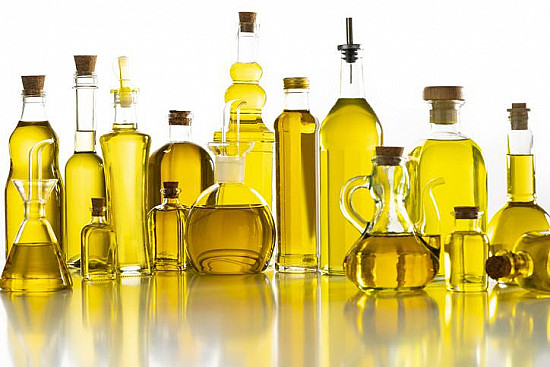New evidence that a heart-healthy diet also helps fight prostate cancer
Replace refined carbs with vegetable fats to slow early stage cancer from progressing to a more lethal form.
Over the years, evidence has accumulated that men who eat a heart-healthy diet and exercise regularly have a lower risk of developing prostate cancer. But recent findings from the Harvard-based Health Professionals Follow-up Study suggest even after a man is diagnosed with prostate cancer, healthy eating can help stack the odds in his favor.
"It's one of the first studies to look at dietary interventions after men have been diagnosed with prostate cancer," says Dr. Marc B. Garnick, a prostate cancer specialist at Harvard-affiliated Beth Israel Deaconess Medical Center. "It supports the idea that you can potentially modify the behavior of prostate cancer that is still confined to the prostate gland."
The findings suggest that a key dietary step to fight prostate cancer is replacing animal fats and refined carbohydrates with healthier vegetable fats from foods such as avocados, walnuts, and soybean, canola, and olive oils. Men who do this may be less likely to develop aggressive and more dangerous prostate cancer, as opposed to the slow-growing, low-risk type that many men die with but not from.
Dietary supplements: no magic bulletsLycopene is a pigment in red fruits such as tomatoes and watermelon. Eating tomato sauce and other foods with lycopene regularly is associated with a lower risk of prostate cancer. There is no good evidence yet that taking lycopene supplements prevents prostate cancer. Vitamin E is an antioxidant nutrient found in a variety of fruits, vegetables, nuts, and seeds. The SELECT study found no evidence that 400 International Units (IU) per day of vitamin E in a dietary supplement prevents prostate cancer. Further analysis of the SELECT study findings revealed that men who took vitamin E had a higher risk of prostate cancer than those who took an inactive placebo pill. Selenium is a chemical found naturally in soil, groundwater, and certain foods. The SELECT trial found no evidence that 200 micrograms per day of selenium as a dietary supplement prevents prostate cancer. |
Healthy fats cut risk?
The Harvard study involved about 4,500 men who were diagnosed with early-stage, nonmetastatic prostate cancer, meaning it had not yet spread beyond the prostate gland to other parts of the body. Researchers knew what the men ate thanks to detailed food surveys that every study participant filled out periodically.
Men who ate the most vegetable fats were less likely to develop the more lethal form of prostate cancer, compared with men with diets richer in animal fats. Most of the vegetable fats came from oils in salad dressings and nuts.
Does that mean that something in vegetable fats helped to keep the cancers in check? We cannot really answer that question based on this study, although vegetable fats do contain substances that could, hypothetically, help to keep cancer in check by suppressing cell damage and inflammation.
Another possibility is that the men benefited from what they were eating less of, which is carbohydrates. Men who replaced 10% of their total calories from carbohydrates with calories from vegetable oils were 29% less likely to die from prostate cancer over eight years of follow-up.
Does this mean that low-carb diets fight cancer? Again, we can't be sure. The study tells us that men who eat the most vegetable fats, as opposed to animal fats and carbs, are at lower risk of developing lethal cancer. It does not tell us why.
But don't despair over all these scientific uncertainties. This study and many others before it point consistently in one direction: The traditional Western diet—relatively high in red meat and other sources of animal fats—comes with a higher risk for cancer. "One of the things I tell my patients is not to eat animal fat, or to at least limit its consumption," says Dr. Garnick, editor of the Annual Report on Prostate Diseases, from Harvard Medical School.
Decades of scientific data show that men who consume the most animal fat tend to also have the highest rates of prostate cancer. That said, studies that just observe statistical links between foods and disease always leave us a bit uncertain. It may turn out that the men in these studies have lower cancer risk for reasons unrelated to the foods they eat. "So many things that have been touted to be beneficial tend not to be so once they are subjected to a rigorous testing," Dr. Garnick says.
What to do for now
While science puzzles over the details, men can rest assured that eating more beneficial vegetable oils, eating fewer (or healthier) carbohydrate-rich foods, and eating less red and processed meat are all part of a healthy diet. These steps also fight heart disease, which remains the leading killer of American men. In fact, the study also showed that men who ate the most vegetable fat were 34% less likely to die from any cause—not just prostate cancer.
In the end, what's good for the heart seems to be good for the prostate, too. As with so many health questions, the final answer is still uncertain, but you can do a lot to bias the odds in your favor.
Disclaimer:
As a service to our readers, Harvard Health Publishing provides access to our library of archived content. Please note the date of last review or update on all articles.
No content on this site, regardless of date, should ever be used as a substitute for direct medical advice from your doctor or other qualified clinician.















